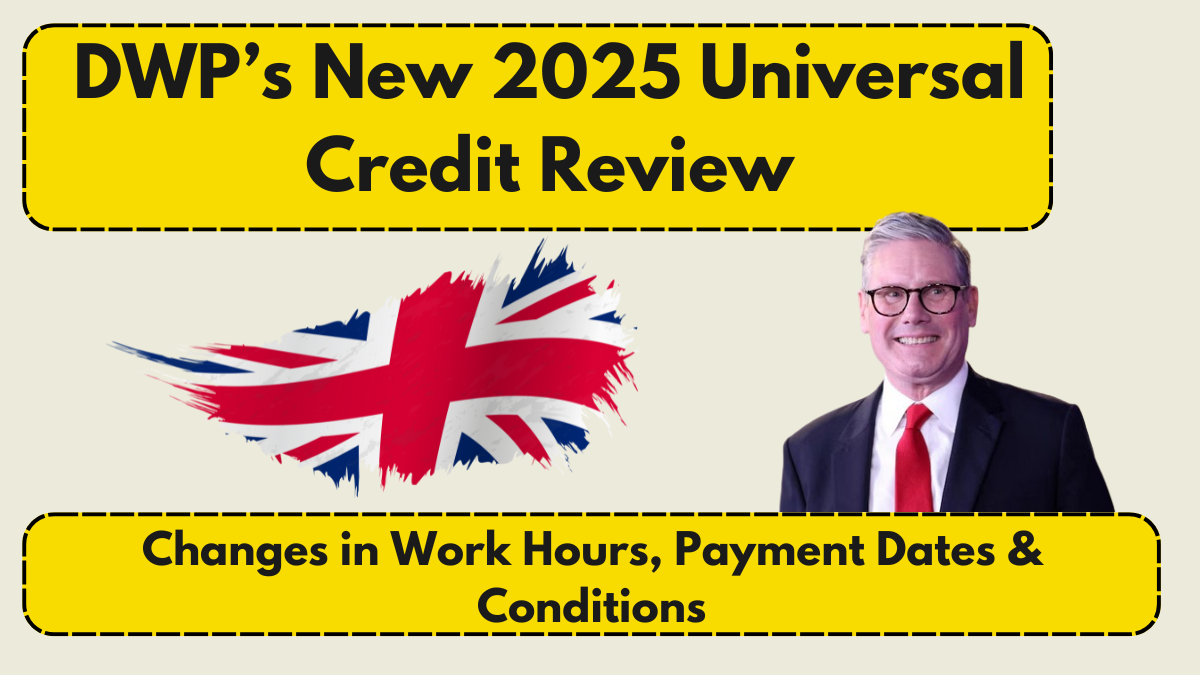The Department for Work and Pensions (DWP) is rolling out a significant overhaul of Universal Credit (UC). The upcoming changes affect working hours, payment schedules, and compliance requirements for claimants across the UK. These updates aim to streamline benefit administration and push for greater workforce participation. Here’s what you need to know about the universal credit changes 2025 and how they may impact you.

What’s New in the UC Review July 2025?
The UC review July 2025 brings a sharper focus on employment engagement. The DWP is tightening expectations for part-time workers by raising the minimum number of working hours required to avoid sanctions. Previously, claimants working 15 hours per week met the threshold. Now, this has been raised to 18 hours per week for most recipients, with exceptions for individuals with caring responsibilities or health limitations.
This shift is part of the government’s broader plan to reduce long-term benefit reliance. The benefit rules UK are evolving to encourage more consistent employment patterns and financial independence. Those who do not meet the new minimum hours may be required to attend mandatory job coaching sessions or face deductions.
DWP Payment Update: Changes in Payment Dates
Another core element of the 2025 updates is a realignment of payment dates. Historically, Universal Credit was paid on a monthly basis, usually on the same date. Under the new structure, payments may now be staggered across specific weekdays to reduce pressure on the DWP’s processing system and minimize delays.
Claimants will receive advance notice if their payment cycle is affected. This system aims to ensure faster processing times and lessen the occurrence of late disbursements. The DWP payment update also includes an enhancement to online account notifications, providing clearer visibility of upcoming payment amounts and due dates.
Revised Conditions and Sanctions
With the introduction of new compliance requirements, the DWP is also adjusting its approach to claimant conditions. Those receiving Universal Credit must now attend quarterly assessments to remain eligible, replacing the previous biannual check-ins. These sessions are focused on progress toward work-related goals.
The DWP will use real-time earnings data more actively to monitor compliance. Any discrepancies, such as undeclared income or reduction in work hours, could trigger immediate reassessment or sanctions. The government stresses this move is about accountability, not punishment.
Summary Table of Key 2025 Changes
| Change Area | Previous Standard | New Standard (June 2025) |
|---|---|---|
| Minimum Work Hours | 15 hours/week | 18 hours/week |
| Payment Frequency | Same date monthly | Staggered weekday payments |
| Eligibility Check-ins | Every 6 months | Every 3 months |
| Non-Compliance Sanctions | Discretionary and limited | Stricter and data-driven |
| Notification System | Basic online update | Real-time enhanced notifications |
Long-Term Implications for Claimants
These universal credit changes 2025 reflect a shift in the UK’s social welfare philosophy. The DWP is prioritizing employment participation over long-term support. While the system still includes provisions for vulnerable groups, the tightening of benefit rules UK is intended to limit misuse and promote productivity.
Supporters argue that the new UC structure rewards effort and promotes dignity through work. Critics, however, warn that these changes may disproportionately affect low-income workers juggling multiple part-time jobs. It’s essential that affected individuals engage with their Jobcentre Plus advisor to understand the full implications and options available.
Conclusion
The universal credit changes 2025 are more than administrative tweaks—they represent a recalibration of the UK’s benefit landscape. With new rules around work hours, stricter compliance, and revamped payment systems, staying informed is vital. For anyone currently receiving UC or considering a claim, understanding the dwp payment update and uc review July terms is key to navigating the road ahead.
FAQ: Universal Credit Changes 2025
What are the new minimum working hours for UC in 2025?
The minimum has increased from 15 to 18 hours per week for most claimants, encouraging more consistent employment.
Will my payment date change under the new system?
Yes, payment dates may be staggered across different weekdays to ease processing loads. You’ll be notified in advance.
How often do I need to attend UC assessments now?
Assessments will now occur every three months, replacing the previous six-month cycle.
What happens if I don’t meet the new requirements?
Non-compliance may trigger job coaching requirements or financial penalties, depending on the circumstances.
Are there exemptions to the new rules?
Yes, individuals with health conditions or caregiving duties may be eligible for exemptions or adjusted requirements.
For More Information Click Here



